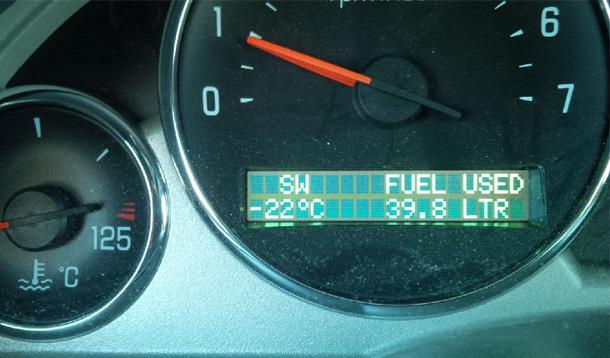We live in a beautiful country with all four seasons coming through the year. Lovely, isn’t it? Except that I’ve been at home for today – refusing to go out because it’s -20C outside, never mind the wind chill. Contrast that with the summer months, where we can have temperatures registering in the low 30C range and that’s not even factoring in the humidity.
Our temperatures can spread about 50 degrees Celsius when we look at the low and high ranges through the year. Here are some examples how our cold weather can affect your vehicle:
Perhaps the most obvious to many is the effect cold temperatures have on starting the engine. According to
Interstate Batteries, your vehicle’s battery loses 33% of its power when temperatures fall below 0C. This results in less electrical output available to the starter motor, which then causes the engine to crank slower.
Cold temperatures have different effects on fluids. For example,
engine oil tends to thicken in very cold temperatures so your engine may need to work that much harder to turn over. Many people think of coolant as important in the summer months to prevent your engine from overheating, but proper coolant in your engine will prevent it from freezing in cold temperatures. What could possibly happen if your engine coolant freezes? It will expand and potentially crack the engine block… and as you can already guess, that is a costly replacement. In terms of windshield washer fluid, there are different types available on the market, winter-rated ones can generally withstand up to -40C weather although I have seen some that will go as low as -80C. Though if Canadian winters ever get that cold, I will be on the first flight out to a Caribbean destination – who’s with me?!
By now you should all be aware that
winter tires are recommended for our Canadian winters (in Quebec, they are mandatory). All-season tires begin to harden at temperatures below 7C and are unable to remain malleable on the road to give you good traction.
Keep in mind that the rubber components in your vehicle are affected by extreme temperatures. These components include belts, hoses, and bushings. Rubber, over time, becomes hard and brittle. The fact that we have a wide range of temperatures mean that some rubber components will deteriorate at a faster rate.
You will typically consume more fuel during the winter months. There are many contributing factors including the use of winter tires, and increased demand on the engine for power to get through the snow. In general, your engine is least efficient at the beginning of your drive cycle as it needs to reach
operating temperature to be efficient. On cold days, it will take your engine longer to reach that desired temperature.
Who wants to be stuck in freezing temperatures because their vehicle broke down? Have your
vehicle maintained regularly so that it’ll be reliable during our cold, Canadian, winter months.
